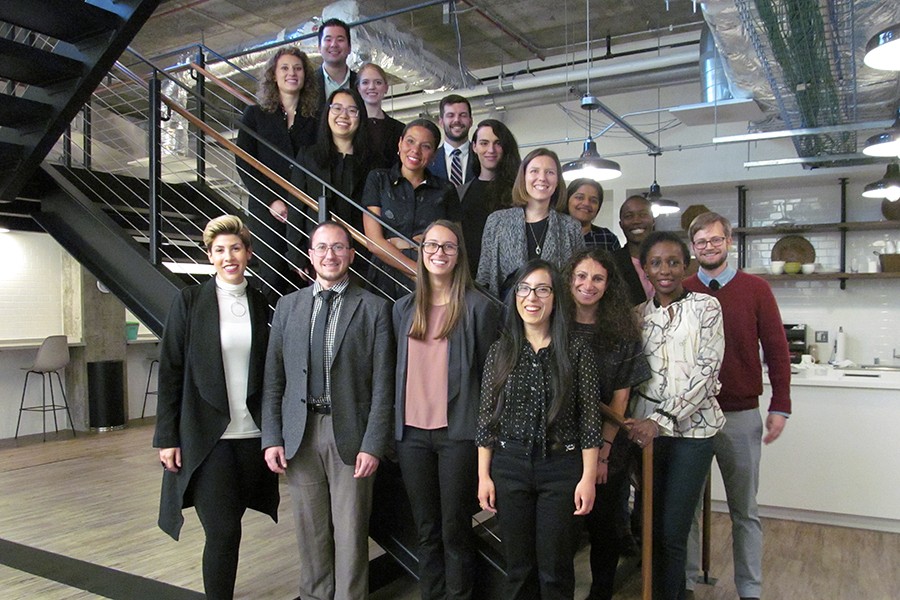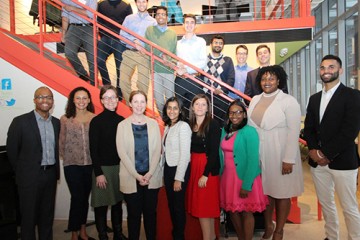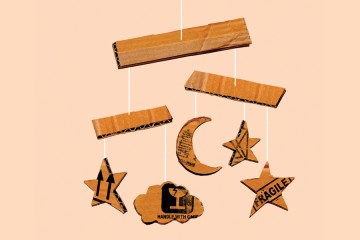The Johns Hopkins Social Innovation Lab announced its 2017-18 cohort Thursday, introducing the 10 promising nonprofit ventures that will receive business and financial support over the next six months. From November through April, these 10 fledgling startups will receive funding, mentorship, training, and office space to help them develop into sustainable ventures.
The Social Innovation Lab received 84 applications this year, up from 53 a year ago. Eight of the ventures aim to improve the Baltimore community, and two groups are international-facing, aimed at communities in Tanzania and Trinidad and Tobago. Eight of the ventures are led by women, and five are minority-led.
"The Social Innovation Lab has a tradition of bringing together ambitious, talented, and—most importantly—compassionate people who have real-world experience with the problem they are attempting to solve," said Darius Graham, director of student ventures at Johns Hopkins Technology Ventures, which operates the Social Innovation Lab. "Our mission is to give them the tools and the resources to transform their ideas and innovations into viable ventures that make a meaningful impact here in Baltimore or around the world."
Since 2011, the Social Innovation Lab has supported 62 ventures, which collectively have gone on to raise more than $13 million in additional funding and have hired 269 people in paid roles and 925 people in volunteer positions. The program is open to Baltimore-area community members and Johns Hopkins faculty, students, and staff.
The 2017-18 Social Innovation Lab cohort includes:
Distribution Health, a venture that will develop a workforce that distributes health care services in the Baltimore area. The core member is community member Andrew York.
Mera Kitchen Collective, Baltimore's first worker-owned food cooperative. Operated by newly resettled refugees and immigrants in Baltimore, the co-op will be a place for sharing exceptional cuisine and stories, with a focus on empowerment, equity, and democratic decision making. The core members of this venture are Emily Lerman, an alum of the Bloomberg School of Public Health; Aishah Alfadhalah, a staff member at the Kennedy Krieger Institute; and community members Liliane Makole, Brittany DeNovellis, Iman Alshehab, and Megan Murray.
PIVOT, a training program aimed at educating, empowering, and equipping women who are re-entering the workforce.
Johns Hopkins undergrad Victoria Roberts is the core member for the venture The Growing Minds Initiative, which aims to create sustainable poultry and green vegetable farms to fund education and health care for orphaned and vulnerable children in Dar es Salaam, Tanzania.
Neighbour, Neighbour, a venture aimed at improving safety in a country with one of the highest homicide rates in the world, Trinidad and Tobago. The venture, and an app that's in development, will allow residents of Trinidad and Tobago to make more informed personal security decisions. The core member of Neighbour, Neighbour is Zindzi Thompson, a graduate student at the School of Advanced International Studies.
BeeMore Cooperative, a community beekeeping cooperative that seeks to engage community members through education about pollinators and healthy lifestyles. The venture aims to create new urban beekeepers in Baltimore City. The core team member is community member Michelle Bailey-Hedgepeth.
ClearMask, the first full-face, transparent face mask for health care professionals. The clear face mask can help reduce medical errors caused by miscommunication, increase hospital compliance, and improve patient satisfaction for the deaf and hard of hearing, children, immunosuppressed patients, and other groups. The core team members are Aaron Hsu, an alum and research assistant at the School of Medicine; alum Allysa Dittmar; Inez Lam, a PhD student in the Department of Biomedical Engineering; and Elyse Hoeb, a student in the dual degree program at the Carey Business School and the School of Public Health.
The Active Bed Sore Prevention System, a patient bed cover that features embedded pressure sensors that monitor areas of concern for bed sore development. The device includes a feedback mechanism to alleviate the pressure at the target locations through inflatable pockets. Core team members are School of Public Health graduate students Ruchee Shrestha, Joe Amoah, Vinithra Varadarajan, and Muskaan Khosla; and community members Andrew Nagal and Mitch Gaines.
Hosts for Humanity connects families and friends of patients traveling to receive medical care with volunteer hosts offering accommodations in their homes. The core team member is community member Jenny Owens.
HostHome, a donor-powered Airbnb for members of the LGBT community. The core team members are community members Ava Pipitone and Max Goodman.










